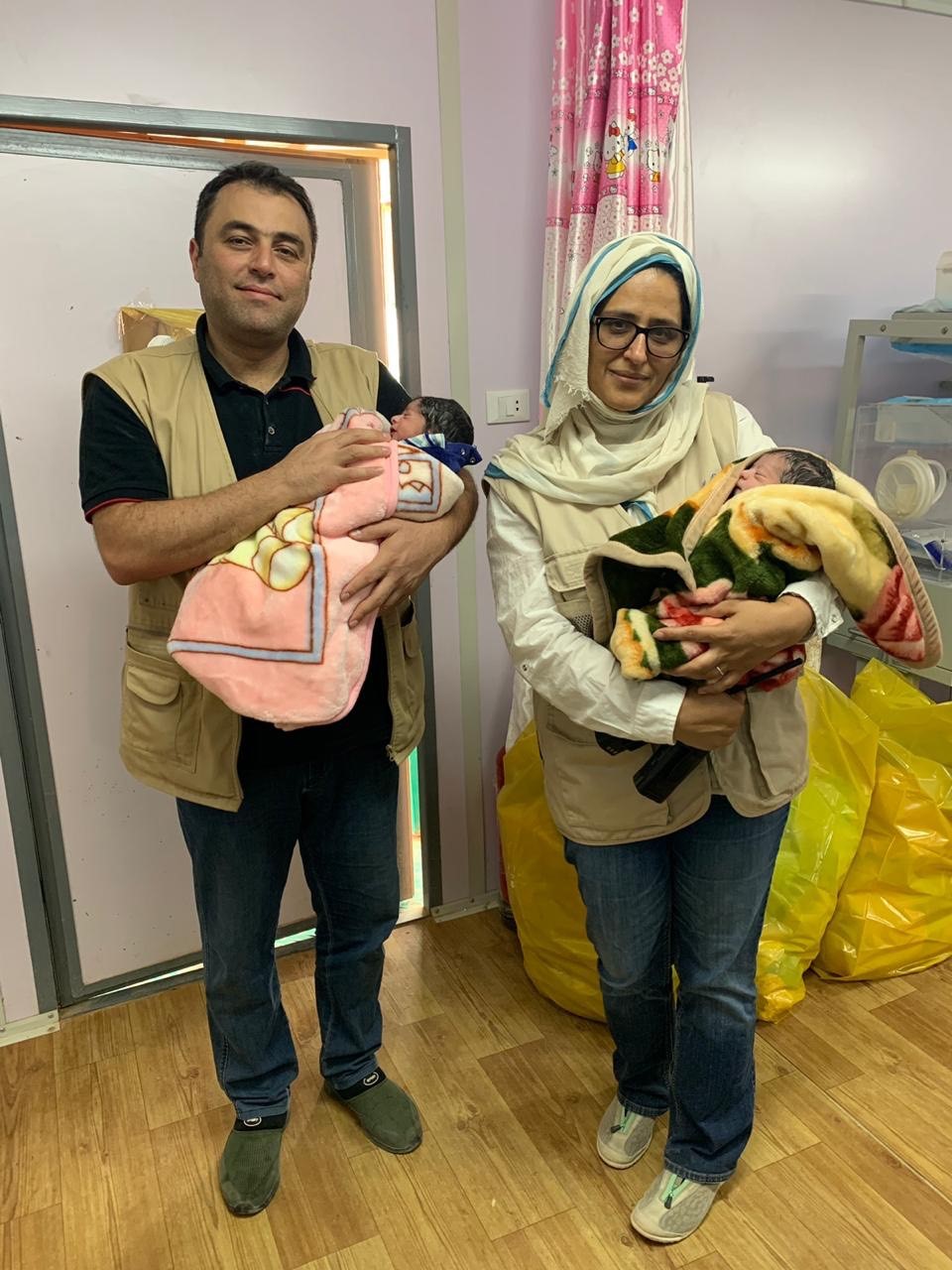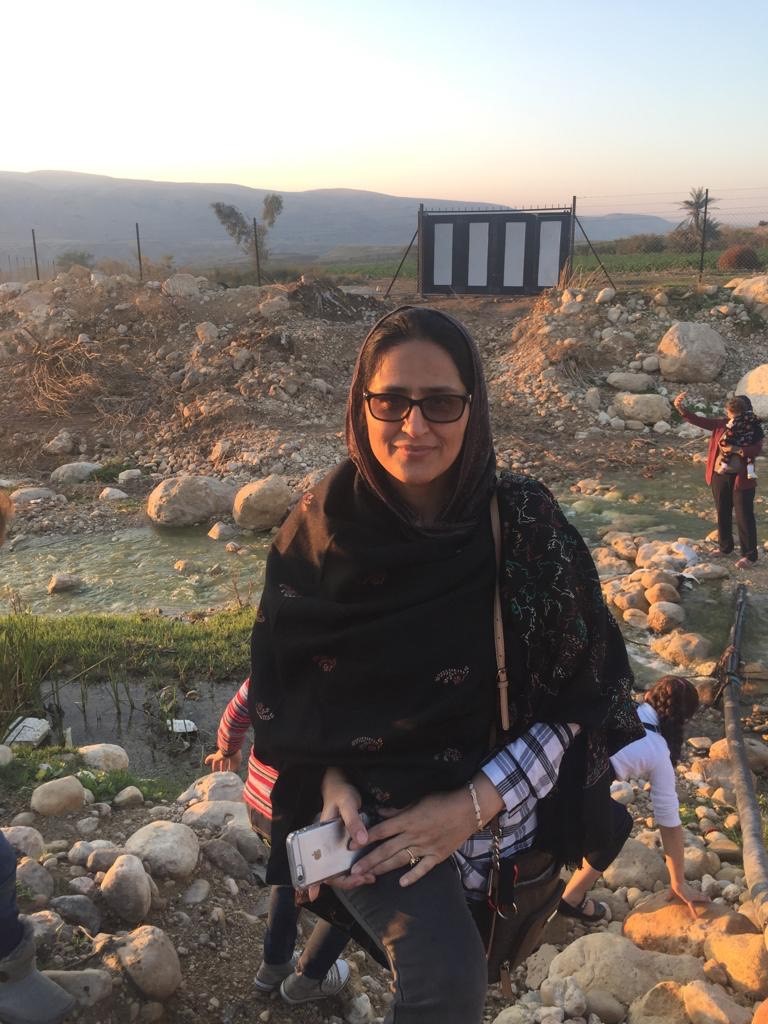“After I graduated college, I applied for a job with UNHCR Afghanistan office based in Islamabad as a National Gender Officer. This was a difficult time for women in Afghanistan, and so my job was certainly not an easy one. Although I was still based in Islamabad and just did missions into Afghanistan, the situations I was faced with were extremely difficult.”
© UNHCR Jordan
“I was 7 when my family and I fled from Afghanistan to Pakistan. My father was worried with the situation, and our future in the country so he smuggled us, my four sisters and two brothers, to Pakistan. My brother and I went together, we were handed over to a nomad who took us over the border. My other siblings and parents came through different routes.”
“I spent most of my childhood growing up in Peshawar where we were registered as refugees. After finishing school, I was awarded a scholarship for Afghan students by the Pakistan commissioner for Afghan refugees. There was only one issued annually for Afghan refugee to attend college in Pakistan and it was only because of this that I was able to go to Rawalpindi medical college. After I graduated though, I was immediately drawn to work with refugees and give back to those who had helped my family and I.”
“After I graduated college, I applied for a job with UNHCR Afghanistan office based in Islamabad as a National Gender Officer. This was a difficult time for women in Afghanistan, and so my job was certainly not an easy one. Although I was still based in Islamabad and just did missions into Afghanistan, the situations I was faced with were extremely difficult. The authorities then didn’t really recognize women’s rights. For the Afghan female-headed households who I was working with we tried to empower them as much as possible and provide them with assistance where needed but it was certainly frustrating when things didn’t progress as quickly as I wanted.”
“After working for UNHCR for three years, I then went back to pursue my medical career. I subsequently worked as a Doctor in Pakistan, for UNFPA in Sudan, Zambia before settling in the US for 10 years where I worked as a consultant.”
“17 years after finishing my work with UNHCR in Afghanistan though, I had a yearning to return. I had just completed my Masters in Public Health from the London School of Hygiene and Tropical Medicine and had made a commitment to myself that one day I would return to work for UNHCR. It felt like the right time and I feel a sense of responsibility to do this work since I was a refugee myself.”

“I ended up getting this job in Jordan, as a Field (Public Health) Officer based in Ruwaished in Northern Jordan. I have now been working here for 2 and a half years. For me, the work in Ruwaished is more difficult and tougher than it ever was in Afghanistan.”
“Here we are responsible for attending to the health needs of the population who live in Rukban, at the border area between Syria and Jordan. When I first started working here, there were around 50,000 people living in Rukban. Although the number has now reduced to approximately 25,000, they still have many health needs. Every day I hear hard-hitting stories from those live in Rukban when they come for treatment.”
“The Health Clinic on the Jordanian side of the border currently receives around 120 patients a day. In addition to UNHCR, UNICEF and UNFPA are also present. The Jordanian Armed Forces bring patients to the clinic daily from Rukban. We leave Ruwaished at 7 am and arrive at the clinic by 9:30 and work until we have addressed the needs of all the patients. We see a wide variety of cases from pregnancies and those simply needing primary health care interventions, to more serious emergency cases. For those, we evacuate them to hospitals in Jordan for lifesaving interventions.”
“There is one case of a pregnant lady which I can’t forget. She had previously had four Cesarean sections and so was supposed to approach the clinic for an elective operation for her fifth child but was unable to come in time. When she did approach the clinic, she was in active labor and in critical condition. She was evacuated to Jordan by UNHCR on urgent basis. After several complicated surgeries her life was saved but unfortunately we could not save the child.”
“Since 2016, the clinic has supported 92,000 consultations and nearly 2,000 people have been admitted to Jordan for further medical help in emergency cases.”
“The border is around a three-hour drive from the compound where we live in Ruwaished. Doing that drive most days certainly takes its toll on you both physically and mentally. It’s a remote border area, and although at UNHCR we have good relationships with the Jordanian authorities who operate in the area, it’s still difficult. In the summer, the temperature often reaches over 45 degrees and in the winter it’s freezing cold.”
“In addition to my work at the clinic, I am also responsible for leading coordination meetings with the other agencies and partners who are operating in Ruwaished to make sure that we are all working towards the same goal. I am the only female international staff based up here, which can be a challenge, but I am trying to make the most of it, learning bits of Arabic in my spare time.”

“My family, husband, and two boys are based in New Jersey in the United States. I get to go and visit them approximately once every 2 months. It is difficult being separated from them, but here I feel I am making a difference even though at the end of the day I always have this feeling that I could have done more.”
“After working in Ruwaished, now I feel I could work anywhere in the world.”
Share on Facebook Share on Twitter